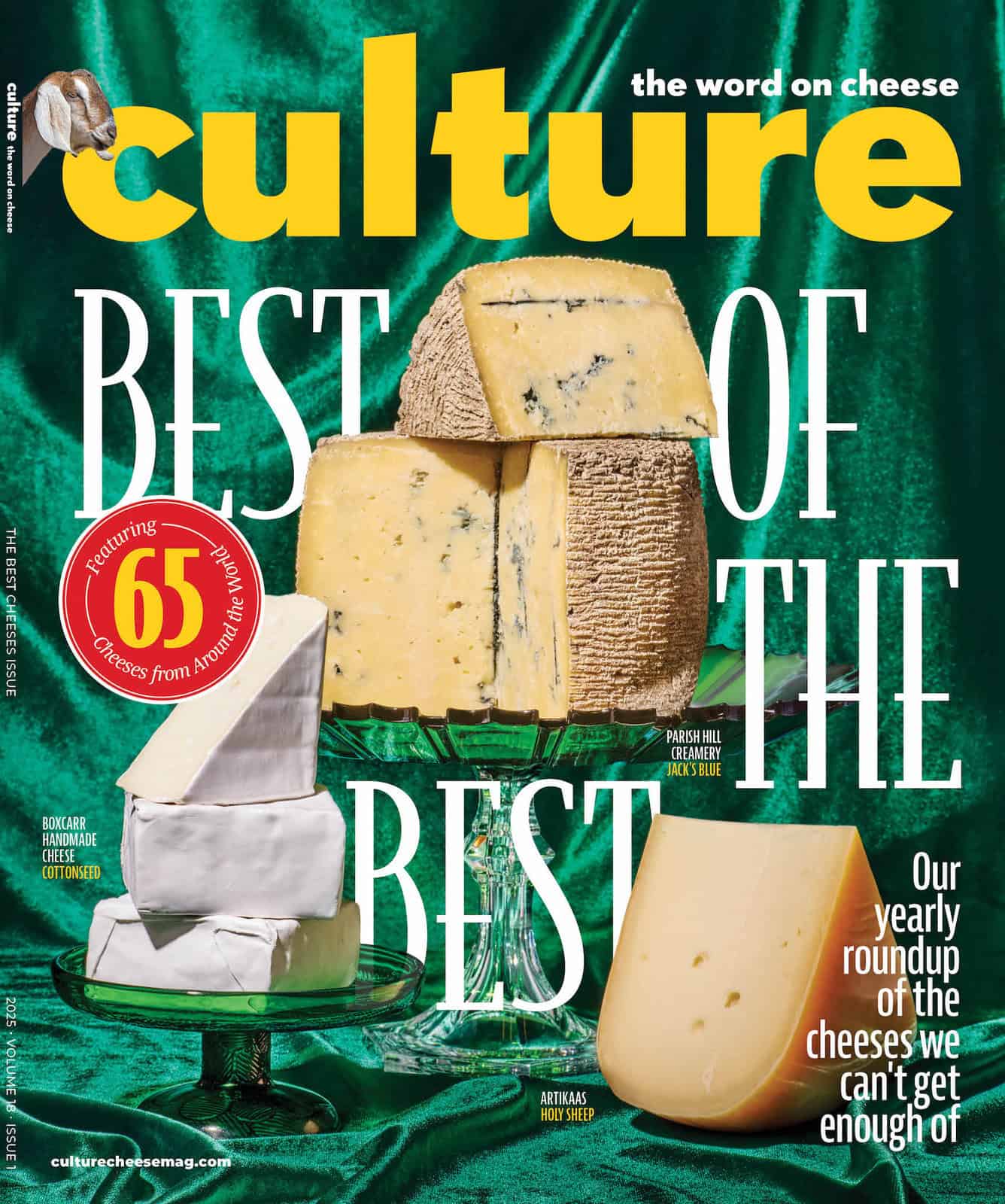
Sustainability is a multifaceted concept. In business, it can refer to environmental practices, financial status, or labor supply— among other things. For this installment of Stirring the Curd, we spoke to two industry leaders to learn how they view and prioritize sustainability in their businesses.
Sarah Hoffmann is the owner and founder of Green Dirt Farm in Weston, Missouri. She started the farm in 2002 and produced her first commercial batch of cheese in 2008. Since then, Green Dirt Farm has gone on to win numerous awards for its sheep’s milk cheese and now also operates a café and cheese shop.
For us, environmental sustainability is foundational for this farm, and it really was one of the most important values I started with. When I started the plan for the business, that was my number one goal: to create a dairy farm that took those values of environmental sustainability extremely seriously, and that we would do everything we could to create a farm that lived by those values.
Twenty years on, we have come to realize that we must also be economically sustainable to make a difference, so that’s a goal of ours. I like to say that we’re not only for profit, but we must have profit to make a difference. We must have a farm system that other people can emulate, and that can actually pave the way to some real, lasting change.
When I say that, I’m sure you recognize that I am saying we are not yet economically sustainable. But we believe we can get there, and we believe we know the path to get there. We need to capture some of the margins that our wholesalers and distributors are getting. And that is what has driven us, apart from the fact that it’s a fun and creative idea, to open a restaurant. We recognize we need to be getting more of that profit margin.
It almost goes without saying, but environmental stability is baked in. It is part of our DNA; we are not going to change that. We have all our processes in place to make that part of everything we do and part of our ethos and culture. But it’s the economic sustainability that is the biggest challenge for us to do within the parameters of our environmental practices. It’s our biggest hurdle, really. So we focus on that.
We do have additional labor costs and additional feed costs, and there are times when your stomach drops when you see the price of something that you have to pay for because you have this standard that you don’t want to set aside. We recognize that we have to pay people better because it’s the right thing to do, but also because we need to be competitive. And I think it’s the right thing to do, but it’s economically difficult and it really strains what we’re doing.
People either think that we’re totally crazy, or they think that we’re somehow raking in the dough. They see that we keep growing and think that we’re doing phenomenally well, and that’s not true. It’s really, really challenging.
Kendall Antonelli is co-owner and founder—along with her husband, John Antonelli—of Antonelli’s Cheese Shop in Austin, Texas. Since opening its doors in 2010, Antonelli’s has grown from a local cheese shop to include an event space, a national e-commerce platform, and a wholesale distribution program.
When I think of sustainability right now, I think of the labor force. Do we have regular, good people who will show up each day? I think of the financials and pivoting out of this pandemic, trying to identify the best places of our business to lean into and which ones to cut—always with the goal of being more intentional about environmental sustainability while staying committed to who we source from, how we source, and our operational procedures.
When we started out, sustainability really meant environmental sustainability, people’s land practices and really looking at the “green” aspect of sustainability. We’ve found that to contribute to environmental sustainability (and hopefully regeneration in some cases!), we must first and foremost be a sustainable business. We can’t achieve all that we want to accomplish if we aren’t open or don’t have passionate and reliable team members who believe in our mission.
That means there are times when we’ve had to prioritize keeping the doors open and the lights on or rebuilding team culture. In today’s shifting labor market, one of our main focuses is on attracting and retaining talent. We realized that if we don’t have the team, we can’t do the work.
To that end, our efforts have been put toward a better quality of life for our team members. That meant offering paid vacation and sick time early on in our business when we couldn’t afford it. That gave way to offering paid health and dental insurance, despite not having the profits to back it up. But we’ve known those were the right decisions, and that, if we couldn’t take care of our people’s basic needs, it wasn’t worth being in business.
Shortly after the pandemic started, we launched an employment assistance program that offers free mental health services and physical health advice. And just this week, our director of operations, Nicholas Kadrlik, proposed and launched unlimited PTO for our salaried employees. Again, we’ve got a ways to go, but we keep pushing the needle forward.
I think we have a lot of questions to answer and challenges to figure out in the American artisanal cheese industry about how we make it financially sustainable, both for operators and for employees. Fortunately, there are new people coming in with innovative ideas who can maybe figure out a way to do it differently. In the meantime, we’ll keep the hope and dream alive as long as we can.



